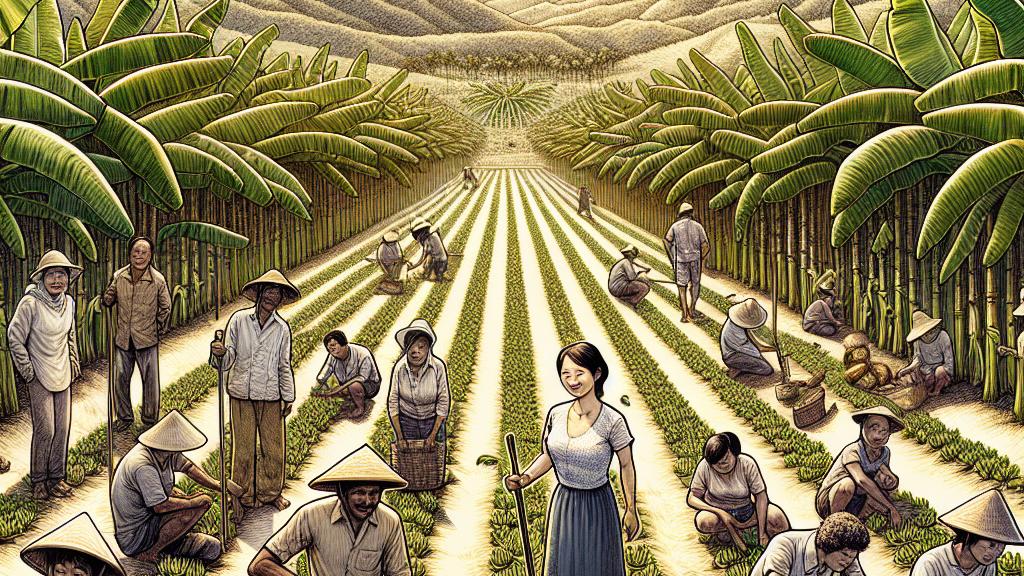Banana Bonanza: South Korean Farmers Turn Tropical Dreams into Reality
Overview
- South Korean farmers are embracing new agricultural practices to grow tropical bananas due to climate change.
- Rising temperatures are reshaping crop options and agricultural viability in South Korea.
- Consumers may see benefits from local production, including lower prices and fresher produce.

Climate-Driven Agricultural Innovations
In Seoul, South Korea, an extraordinary shift in agriculture is occurring as local farmers, led by pioneers like Ma Myung-sun, turn their focus toward tropical bananas. This transition is fueled by alarming changes in the climate, marked by increasing temperatures and altered seasonal patterns. The Korea Meteorological Administration reported that the average annual temperature reached a record 13.7 degrees Celsius in 2023, the highest since tracking began in 1973. Corresponding with these changes, the area designated for subtropical farming expanded exponentially, multiplying from 295 hectares in 2021 to over 3,300 hectares by 2023. This significant agricultural transformation indicates not only a response but also an adaptation to the warming climate of South Korea.
Adapting to New Prospects: Crop Diversity and Sustainability
Beyond just bananas, farmers are experimenting with an array of tropical crops, such as papayas, embracing the potential for agricultural diversity. Ma Myung-sun, who converted a portion of his family pear farm into a community venture in 2006, is at the forefront of this movement. While celebrating the prospects offered by climate change, farmers express concerns about the broader implications, such as soil health and sustainability. Experts like Professor Kim Kwang-soo from Seoul National University stress the necessity for farmers to identify viable crop varieties to optimize yields while considering the environmental impact of their practices. This perspective is essential not only for achieving successful harvests but also for fostering a resilient agricultural community amid shifting climate conditions.
Economic Opportunities for Consumers and Local Farmers
The evolving landscape of agriculture in South Korea presents new economic opportunities for both farmers and consumers. Historically reliant on imported tropical fruits, South Korean families may soon enjoy locally sourced varieties at lower prices as these crops take root. The shift toward homegrown bananas and other tropical fruits could alleviate the financial pressure of purchasing imported goods, stimulating local markets and promoting inclusivity. Customer feedback illustrates a growing demand for fresh, locally grown produce, indicating positive reception toward this agricultural evolution. As farmers navigate this new terrain, the benefits of accessing affordable tropical fruits locally promise to enhance food security and support sustainable practices, making this agricultural venture a win-win for everyone involved.

Loading...